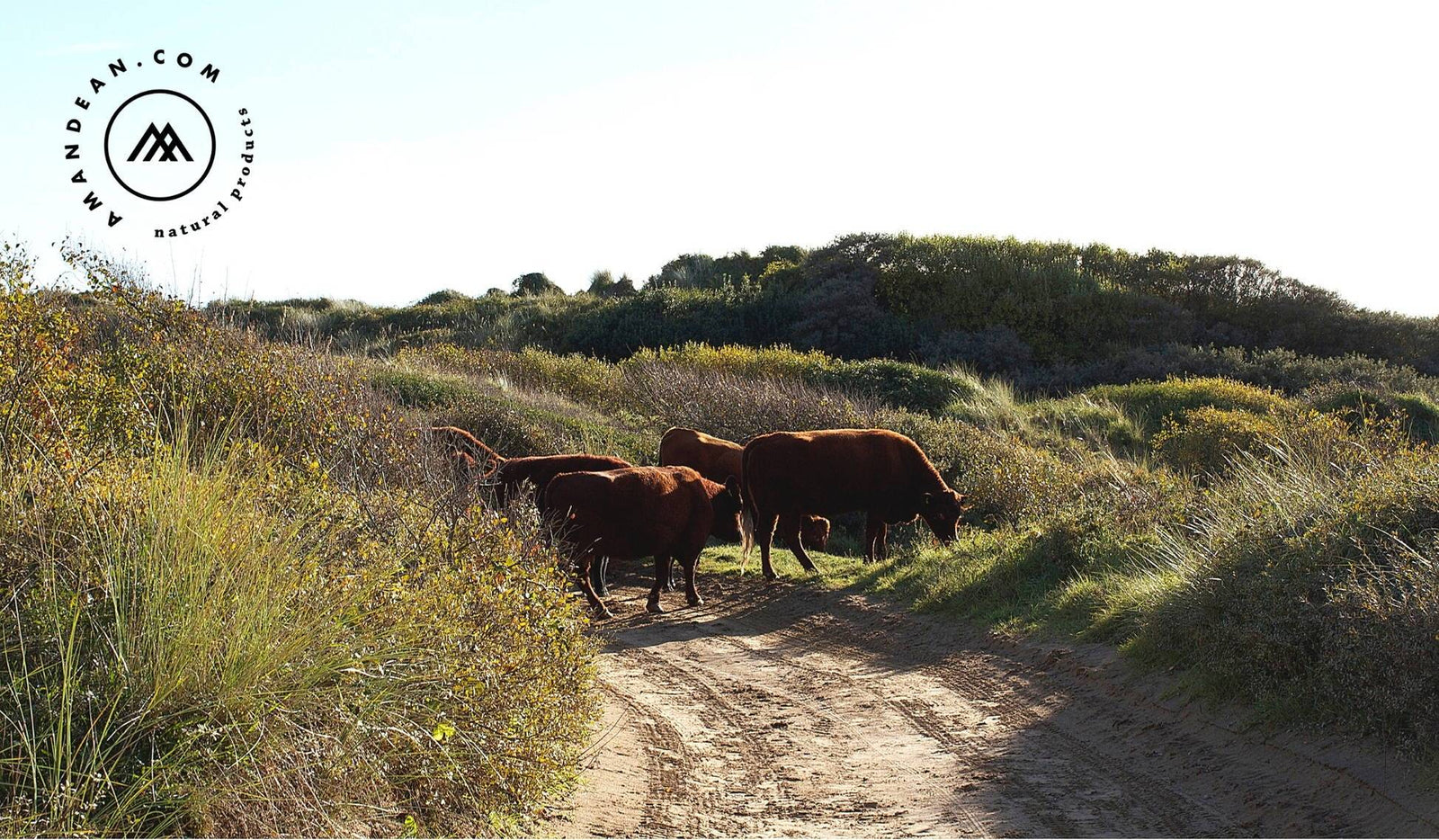Your Cart is Empty
Subscribe to your favourite Amandean products today to make sure you never have to worry about running out and Save 10% too!
Subscribe to your favourite Amandean products today to make sure you never have to worry about running out and Save 10% too!

April 23, 2021 6 min read
Collagen protein is the most abundant protein in the human body. All throughout our lives, our body produces collagen to serve as a building block for our connective tissues, joints, ligaments, eyes, blood vessels, and muscles, keeping them flexible and strong. It's the most important element of our anti-aging skincare routine by supporting skin elasticity, hydration, and thickness, to fight away wrinkles like no topical product ever could! We need this stuff! The problem is that as we age (and especially after menopause for women) our body decreases in collagen production and any collagen we alreadyhave can become damaged by free radicals. The good news is that we aren't the only ones who produce collagen. Collagen is produced by many animals and can be extracted into a pure collagen supplement. When consumed, collagen protein powder is broken down into amino acids glycine, proline, and hydroxyproline. Sustainably, ethically, and responsibly sourced collagen powder can help to alleviate joint pain, increase gains in the gym, and support healthy glowing skin in addition to many other health benefits including:
Take our quiz and find which supplements your body is craving.


The most common source of collagen supplements comes from animals. Cows, chickens, and fish all produce collagen in their skin and connective tissues. This means that aside from bone broth, you can't get collagen just by eating some chicken breast or a nice steak. Thus, dietary supplements were created! Collagen can be extracted from these animal sources through a process called “hydrolyzation” in which the collagen (or collagen hydrolysate) is broken down into a smaller molecular weight that can easily be absorbed by humans. When it comes to purity and sustainability, however, not all of these sources are equal.

Just as there are different sourcesof collagen, there are different typesof collagen as well. For example, chicken collagen (the source) is often used to source type II collagen. In fact, there are at least 16 different types of collagen but of all the collagen used and produced within the human body, types I, II, and III account for 80-90%. Though they all work together to support your joint health, muscle growth, and dermatology needs, each type can be found in different concentrations in various areas of the body, so certain types may be better for specific needs.

One potential downside of collagen supplementation is that it doesn't fit everyone's diet. In most cases, collagen is sourced from the animal products listed above, so it is not vegan. Recently, however, some vegan collagen supplements have been created. This is done by genetically modifying yeast and certain bacteria using human genes that code for collagen. Potentially, this could be a great alternative to animal collagen but as of now, not much research has been done to test the bioavailability of these supplements. Additionally, all this extra work comes with a higher price tag. Though there aren't many collagen-rich foods that are plant-based, consuming vitamin C, nuts, legumes, and beans may all support your body's natural collagen production.
There's never a bad time to start taking collagen supplements! Collagen has virtually no side effects outside of over-consumption and digestive issues. If you want to start, try consulting a doctor or dietitian first. When you begin your shopping journey, remember to be a curious, conscious consumer and look out for these qualities in a clean and effective supplement. Knowledge is power!
All throughout our lives, our body produces collagen to serve as a building block for our connective tissues, joints, ligaments, eyes, blood vessels, and muscles, keeping them flexible and strong.
When consumed, collagen protein powder is broken down into amino acids glycine, proline, and hydroxyproline.
Collagen can be extracted from animal sources through a process called “hydrolyzation” in which the collagen (or collagen hydrolysate) is broken down into a smaller molecular weight that can easily be absorbed by humans.
There are at least 16 different types of collagen but of all the collagen used and produced within the human body, types I, II, and III account for 80-90%.
Potentially, this could be a great alternative to animal collagen but as of now, not much research has been done to test the bioavailability of these supplements.

April 01, 2024 7 min read

March 26, 2024 7 min read

February 27, 2024 6 min read